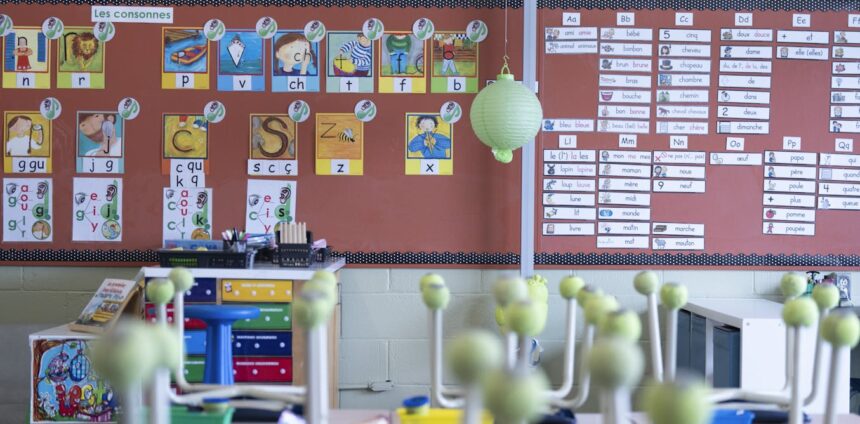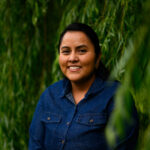The day I visited Mackenzie Heights Elementary School in Vancouver, thirty fourth-graders were huddled over recycled cardboard and bits of plastic, building miniature solar-powered cars. Ten-year-old Amina adjusted a small panel with intense concentration, her forehead wrinkled with effort.
“If we can make these work,” she told me without looking up, “maybe we can make big ones someday and stop using gas.”
Her classmate Rohan nodded. “My dad says climate change is too big for kids to solve. But Ms. Chan says we need to understand it.”
These children represent the generation that will inherit our climate challenges, yet recent findings suggest we’re failing to prepare them adequately. A national survey released last month by Lakehead University researchers found that only four percent of Canadians would give schools an “A” grade for climate education. The majority—52 percent—rated climate education as “C” or lower.
The survey, which collected responses from over 3,800 Canadians across demographics and regions, reveals a concerning gap between what Canadians believe young people should learn about climate change and what’s actually happening in classrooms.
“This isn’t just about adding another subject to an already packed curriculum,” explains Dr. Ellen Field, the study’s lead researcher and assistant professor at Lakehead University’s Faculty of Education. “Climate education represents an existential need for students to understand the world they’re inheriting and develop the skills to navigate it.”
Walking through the colorful hallways of Mackenzie Heights, I noticed student projects on water conservation and posters about local wildlife habitats. Principal Sandra Williams has made environmental literacy a priority, but acknowledges the challenges.
“Teachers are stretched thin,” she tells me in her office, where a window overlooks the school’s newly planted indigenous garden. “We have passionate educators who incorporate climate topics, but without systematic support, it’s piecemeal. Some students get rich learning experiences, others barely scratch the surface.”
The survey confirms this inconsistency. While 85 percent of Canadians agree climate change should be taught in schools, only 32 percent believe schools are doing a good job integrating it across subjects. Perhaps most tellingly, 67 percent think climate education should be mandatory.
Mark Johnson teaches high school science in Fredericton, New Brunswick. When I called him to discuss the survey findings, he wasn’t surprised by the low grades.
“I’ve been teaching for seventeen years, and climate science is still treated as optional or controversial in many schools,” Johnson says. “I’ve had parents complain that discussing climate solutions is ‘too political,’ while others demand more comprehensive education on the topic. We’re caught between competing expectations without clear policy direction.”
The survey highlights regional variations in climate education support. British Columbia and Quebec respondents reported slightly higher satisfaction with climate education in their provinces, while Alberta and Saskatchewan showed more resistance to mandatory climate education, though majorities in all provinces still supported it.
This provincial patchwork approach creates inequity in what Canadian students learn. The Council of Ministers of Education Canada (CMEC) has yet to develop national climate education standards, leaving implementation to provincial discretion.
The gaps become even more concerning when considering what effective climate education involves. According to Learning for a Sustainable Future, comprehensive climate education covers not just the science, but also social, economic, and ethical dimensions, while providing opportunities for students to engage in solution-finding.
“We’re seeing a troubling pattern where climate change might be mentioned in science class, but rarely connected to social studies, economics, or even career planning,” says Naomi Klein, climate education advocate and parent of two elementary students. “Young people need to see how climate intersects with everything from food systems to urban planning to human migration patterns.”
At Mackenzie Heights, I watched Ms. Chan guide her students through reflections on their solar car projects. “What materials did we use? Where did they come from? Could we have made different choices?” she asked. The children discussed resource extraction, energy sources, and transportation systems—connecting science to their daily lives.
This integrated approach represents what experts call “climate justice education”—teaching that examines not just environmental impacts but also human rights, equity, and the disproportionate effects of climate change on vulnerable communities.
Indigenous educators have been particularly vocal about the need for climate education that respects traditional knowledge. “For generations, Indigenous communities have understood the delicate balance of ecosystems,” explains Kayla Littlefoot, an Anishinaabe educator who develops climate curriculum resources. “Our knowledge systems need to be centered, not treated as supplementary.”
When I spoke with teens at a Vancouver climate rally last spring, their frustration was palpable. Sixteen-year-old Jasmine told me she learned more about climate change from social media than from her entire school career. “It’s like they’re afraid to tell us the truth,” she said.
The Lakehead survey suggests she’s not alone in that perception. Only 28 percent of respondents felt schools were adequately preparing students to understand climate anxiety and develop emotional resilience related to environmental challenges.
This matters because climate anxiety is rising among young people. A 2021 global survey published in The Lancet found that 59 percent of youth reported feeling extremely worried about climate change, with many experiencing grief, anger, and powerlessness.
“Schools have a responsibility not just to teach climate facts, but to help students process their feelings and find constructive ways to channel their concerns,” says Dr. Katherine Richardson, child psychologist specializing in eco-anxiety. “Without this support, we risk a generation paralyzed by doom or disengaging entirely.”
The Lakehead survey offers a clear mandate for improvement. Most Canadians want climate education that starts in elementary school, builds knowledge progressively, and prepares young people for a changing world. They want education that balances honest assessment of challenges with pathways for action and hope.
As afternoon sunlight filtered through classroom windows at Mackenzie Heights, I watched Ms. Chan’s students test their solar cars in the playground. Not all of them worked perfectly, but the children weren’t discouraged.
“We’ll keep trying,” Amina told me, adjusting her car’s wheels. “That’s what scientists do, right? They figure out what went wrong and make it better.”
In that moment, I glimpsed what climate education at its best can offer: not just knowledge, but resilience, critical thinking, and the courage to face challenges with creativity and persistence. Our students deserve nothing less.






